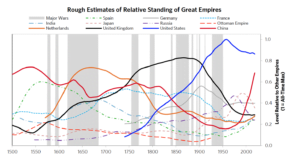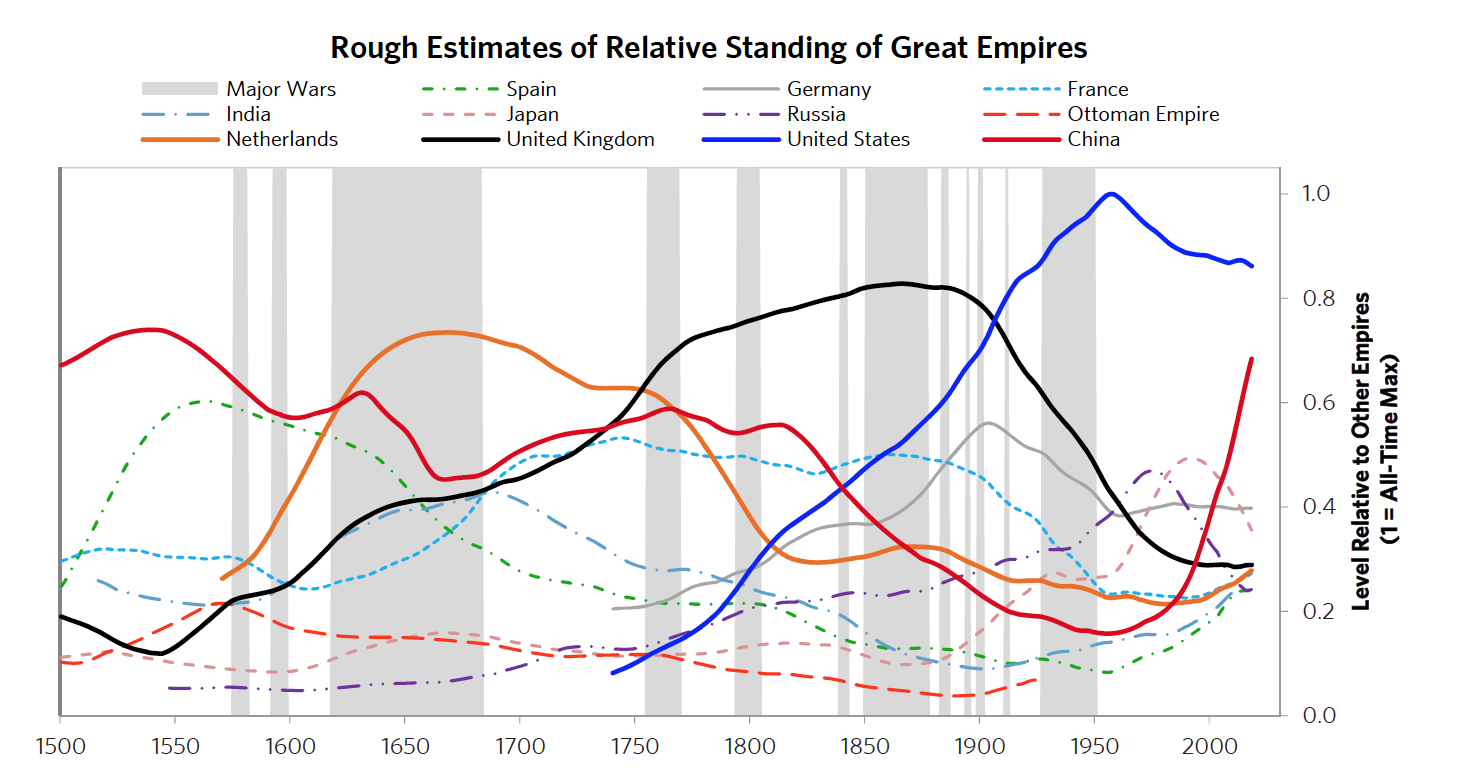
Ray Dalio has published the latest installment of his “Changing World Order” study today, which focuses on China‘s long history including its decline from pre-eminence in the early 1800s, to insignificance early in the 20th century, and its recent emergence as one of the world’s leading empires – as well as its likelihood of becoming the most powerful empire in the world not many years in the future.
Q2 2020 hedge fund letters, conferences and more
China And The Current World Order Shift
Ray believes it is critical to recognize the drivers behind why countries succeed and fail in order to predict and comprehend the current world order shift. His perspective on China comes from his 36 years of interfacing with Chinese people about Chinese world issues, since his first visit in ’84, extensive research about China as well as triangulation with some of the most knowledgeable Chinese, American and non-American scholars and practitioners to write this chapter.
Key Takeaways
Key takeaways from the chapter include:
- Over the last 40 years, China’s shift from isolation to opening up and from hard-core communism to “market reforms” and capitalism has had a greater impact on the economies of the Chinese, the US, and the world than anything else. As a result, China has learned, efficiently produced, exported and earned, lent and invested globally, became richer and more powerful, and radically changed itself and the rest of the world.
- During these past 40 years, China transitioned itself from one of the most backward countries judging by Ray’s eight measures of power to one of the two most powerful countries, most importantly economically, technologically, militarily and geopolitically.
- During the Xi Jinping term, China has gotten stronger and more forceful while the United States has become more confrontational. More specifically, from 2012 until now, China’s strengths grew while the American populist backlash emerged.
- While most Americans focus on particular events, most Chinese, especially their leaders, see evolutions over time and put what is happening in the context of them. While Americans fight for what they want in the present, most Chinese strategize how to get what they want in the future. As a result of different perspectives, the Chinese are typically more thoughtful and strategic than Americans, who are more impulsive and tactical.
- When President Trump was elected, globalization began to be smothered and protectionism and nationalism began to be nurtured. China had become so obviously strong and followed a number of practices that American policy makers and most people found objectionable, and President Xi didn’t hide China’s economic strength and its ambitious goals. As a result, the perception of China as a threat/enemy emerged.
The post Ray Dalio: China And The Current World Order Shift appeared first on ValueWalk.

